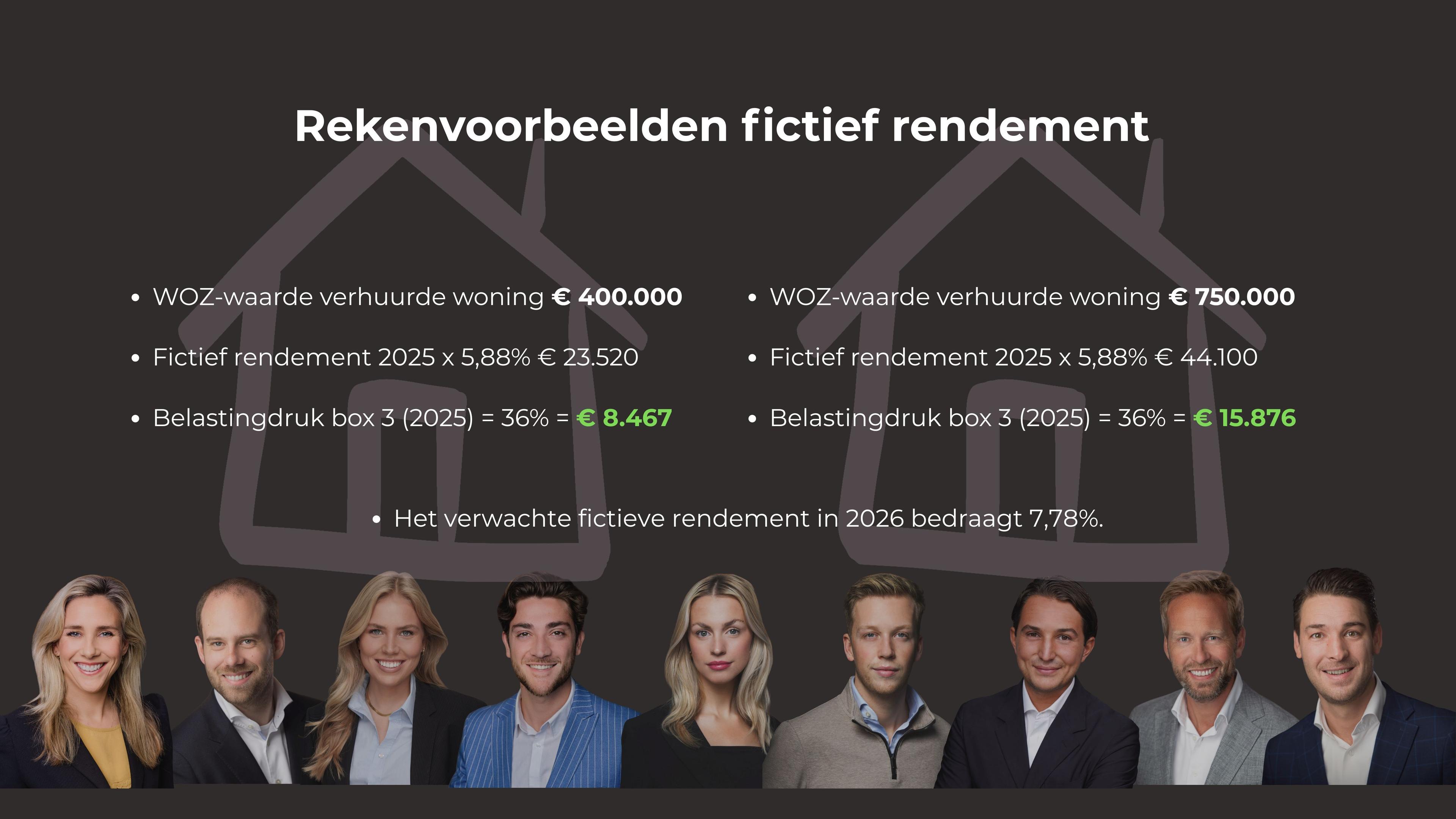As you may have already heard, on 6 June 2024, the Supreme Court issued a very important ruling on the tax position of private investors, including, among others, real estate investors. So, as an owner/lessor of one or more residential properties, this ruling (which was initially scheduled for after this summer but has been brought forward by the Supreme Court) may also be relevant for you.
According to the Supreme Court, only the actual return earned on investments may be taxed in Box 3. The statutory notional return on which you had to pay tax is thus definitively in breach of the prohibition of discrimination. This notional return on e.g. rented property, securities portfolios, etc. was 6.17% for the year 2023. Many (real estate) investors did not achieve/achieve the said percentage. As a result of this Supreme Court ruling, those who achieve a lower return on their rented property will therefore not have to pay more tax on the notional fixed return. But they may be taxed by the Tax Authorities only on the actual return achieved.
In its ruling, the Supreme Court also gave rules for calculating the actual return. Two rules stand out in particular. When calculating the actual return, no costs (such as costs of maintenance, preservation, municipal taxes, etc.) may be taken into account. However, interest on debts may be taken into account. Another striking rule is that interim increases in value also count towards the annual return calculation.
This ruling also immediately raises several questions about its actual implementation in practice. What is certain is that, as a taxpayer, you will soon have to sound the alarm with the tax authorities yourself if you believe that the actual return on your total box 3 assets is lower than the flat rate. If you succeed in that substantiation, you may be entitled to a refund of excess box 3 tax paid. By the way, if you end up with a higher return than 6.17% (2023), it stops there. You will not get an extra-high tax assessment based on the higher return.
So, as a property investor, it is certainly wise to keep your records up to date, so that if necessary, you have the incoming rental streams and financing charges, among others, quickly ready. As for any annual increases in value, these too form part of the annual return. I expect the annual WOZ value will provide practical guidance here. I cannot imagine that you as a real estate investor will be required - in an up market - to have your let property(s) valued annually.
The necessary questions remain: what does this Supreme Court ruling mean concretely for your own Box 3 position? Will you possibly get tax money back? And if so, over which years? Is this ruling beneficial for you - for example, because you may include paid interest on debt as a minus item in annual return calculations - and does it mitigate for you the statutory box 3 increases implemented on 1 January 2023? How can you claim any tax relief?
The Inland Revenue has announced a digital fill-in form to determine the actual - read: lower - return. You will have to make the calculations yourself, possibly with the help of your adviser, at some point and send in the supporting documents. For now, at least, it is certain that the Supreme Court has answered the necessary questions. But there are still many loose ends.
Tom Domic (Advisor Koops Realty)
Tax adviser - Berghoef Accountants and Advisers



